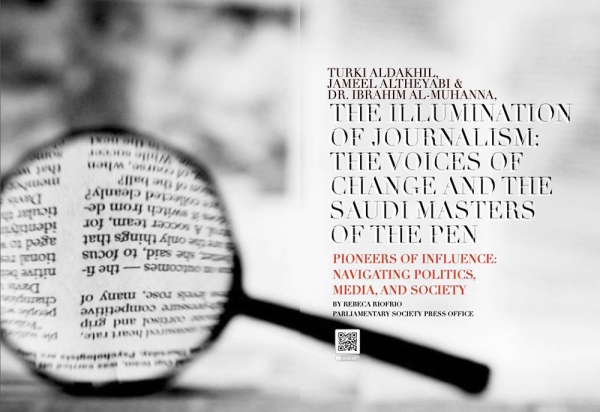
It has been an extraordinary year, so extraordinary, in fact, it required a new word to sum it up: “permacrisis”. This entered the Guardian’s lexicon for the first time in March, an apt word for the annus horribilis that was 2022.
“Permacrisis” went on to become Collins Dictionary’s word of the year and was one of several that broke through, while others gained fresh significance.
A trawl of words used by this newspaper for the first time and examples of the uncommonly common – lesser-used words and terms frequently repeated due to a running story – also tells the tale of 2022 and points to the news cycles that informed our reporting.
The year began with the terms “Partygate”, “lockdown-busting”, “rule-breaking” and “(Sue) Gray” dominating the most commonly used uncommon words in January, marking the fallout from Downing Street parties held during lockdown.
In February, the word “scurrilous” came to the fore after Boris Johnson’s longstanding policy chief Munira Mirza used it to describe the then prime minister’s behaviour when he falsely linked Keir Starmer to the failure to bring the paedophile Jimmy Savile to justice.
After the Russian invasion of Ukraine at the end of February, March was notable for the start of the horror for Ukrainians, with several placenames – Kharkiv, Bucha, Odesa, Mariupol, Kyiv, Kherson and others – appearing with distressing frequency. The invasion also led to #IStandWithUkraine appearing on the website. The #IStandWith hashtag later joined “goblin mode” and “metaverse” as Oxford’s top three words of the year.
Given the events that preceded it, the first use of the term “permacrisis” in the Guardian was particularly apt, in a headline on an article advising parents on how to talk to children about troubling world events.
Politics was never far from the news. Rishi Sunak’s wife, Akshata Murthy, had previously been the subject of Guardian reports connected to her “non-dom” status, and she was in the headlines again in April after a leak led to her confirming her use of the tax loophole.
In May, every headline writer’s dream term rocketed in popularity again when the “Wagatha Christie” trial opened in London’s high court, with Coleen Rooney and Rebekah Vardy taking the stand.
When news broke in June that a Google AI researcher had been suspended after claiming that the company’s flagship text generation chatbot had become sentient, it pushed “sentient” into the top 10 common uncommon words used on the Guardian website that month. It also introduced the acronym “LaMDA” to Guardian readers, with the unusual mix of capitals and lower-case letters distinguishing the bot’s name from the London Academy of Music and Dramatic Art (Lamda, as per the Guardian stylebook).
In July, it was not words but numbers that came to the fore, marking a month of heatwaves and record temperatures after the UK registered a maximum temperature over 40C, surpassing the previous record of 38.7C.
August was a month of firsts, with two entirely new concepts appearing on the Guardian’s pages. “Quiet quitting” is really just a term for doing the job you were hired to do, no more, no less, leaving on time and not taking out-of-hours emails and calls. The Observer explained it for the first time in August, as the term was going global, but it also merited an entire vignette in the Guardian’s First Dog on the Moon.
Another term that made its Guardian debut in August was “splooting”, when squirrels, dogs, cats, marmots and other mammals lie on their bellies – where there is less fur – on hot days to help them cool down.
September’s lexicon was marked by the death of Queen Elizabeth II and the national mourning period of 10 days. The Queen’s coffin was seen by millions around the world resting in Westminster Hall on a raised platform called a “catafalque” – one of several words connected to the funeral and the monarchy that were used with far more frequency that month.
Later that month, the politics pages documented the rise and stupendous fall of Liz Truss and Kwasi Kwarteng with mentions of the pair’s disastrous “mini-budget”, a term that will surely haunt both individuals for years to come.
Another scandal broke in November, when it was revealed that Manston, the asylum centre in Kent, was dangerously overcrowded. The centre opened in January 2022 and in November it was discovered to be housing 2.5 times more people than designed for.
As football fans geared up for the World Cup in Qatar, a term more readily associated with fashion made an appearance on the Guardian’s sports pages. The “bucket hat” went from the subject of a cheery feature on Welsh fans to a news story when rainbow versions of the hats were confiscated from fans entering Qatari stadiums amid the LGBTQ+ protests that marked the early stages of the tournament.
And finally, in December, viva magenta, described as an “audacious” shade of carmine red, made its debut as the colour that captured the zeitgeist of 2022. “It depicts optimism and joy,” Leatrice Eiseman, the executive director of the Pantone Color Institute, said of the selection. “And we know we are all greatly in need of that.”
Jonnie Robinson, the British Library’s lead curator for spoken English, who compiles an annual blog with his favourite sports word of the year, said tracking word frequencies in this way clearly showed the “lexical innovation” that marks the constant evolution of language.
“It also reveals typical processes used when forming new words, like blending (eg perma[nent]+ crisis) and affixation (Party + the ‘pseudo’ suffix -gate), and captures the playful appeal of innovative forms like splooting required to describe new phenomena.
“How well any of these forms endure remains to be seen, but their presence in the Guardian confirms and, no doubt, reinforced their prominence in popular discourse during 2022.”
The words identified in this article were found by searching the Guardian API programatically for “significant terms” and manual searches to find new words which appeared on Guardian’s pages for the first time in 2022. “Significant terms” were gathered by first creating a background to count the frequency of terms across all content available in the Guardian API, some of which date back as far as 1899, to present. A foreground query, which counts the frequency of terms in each subset (a given month, in a given section), was also carried out. Those terms that were a lot more frequent in the foreground set were considered “significant”.












